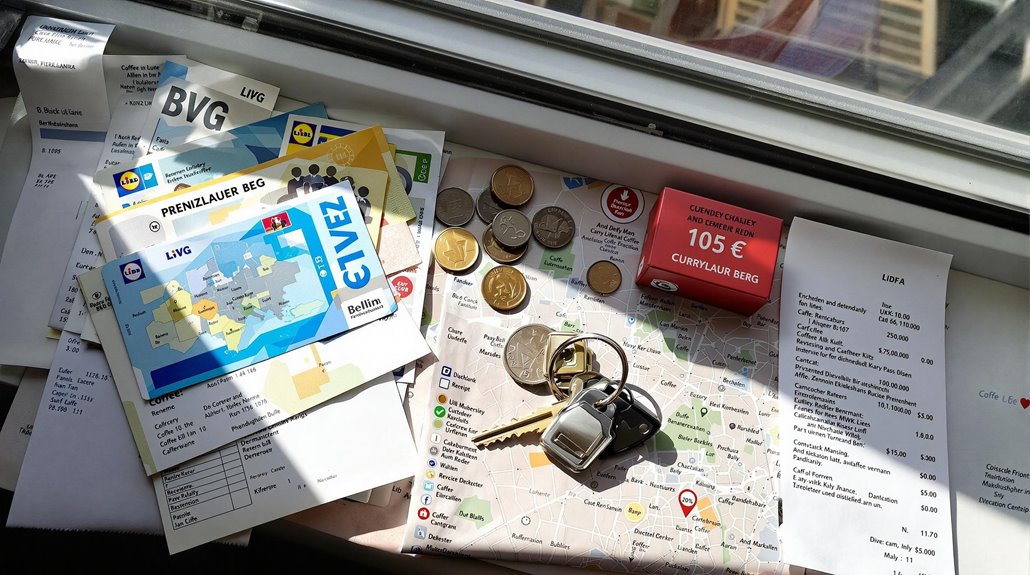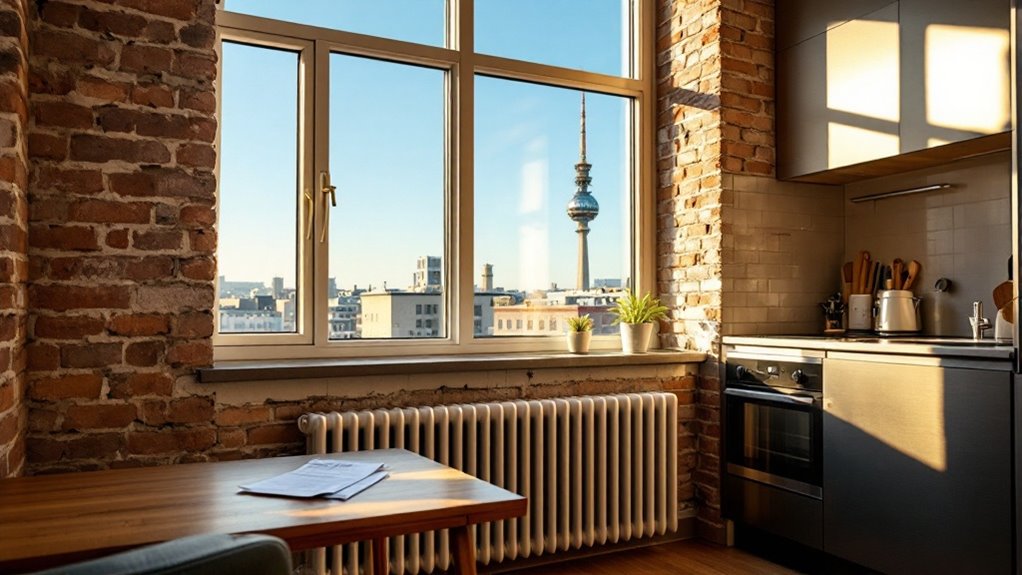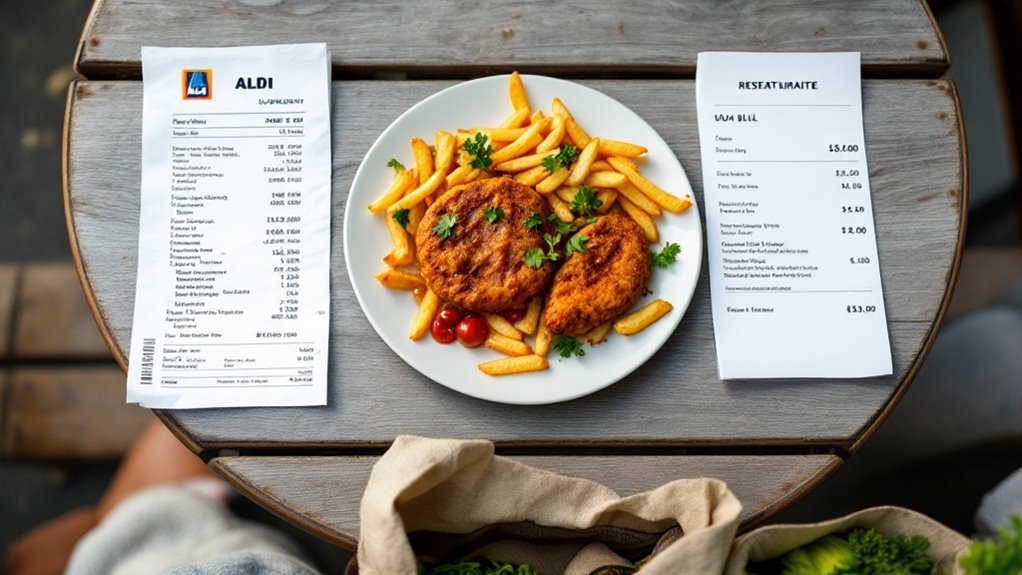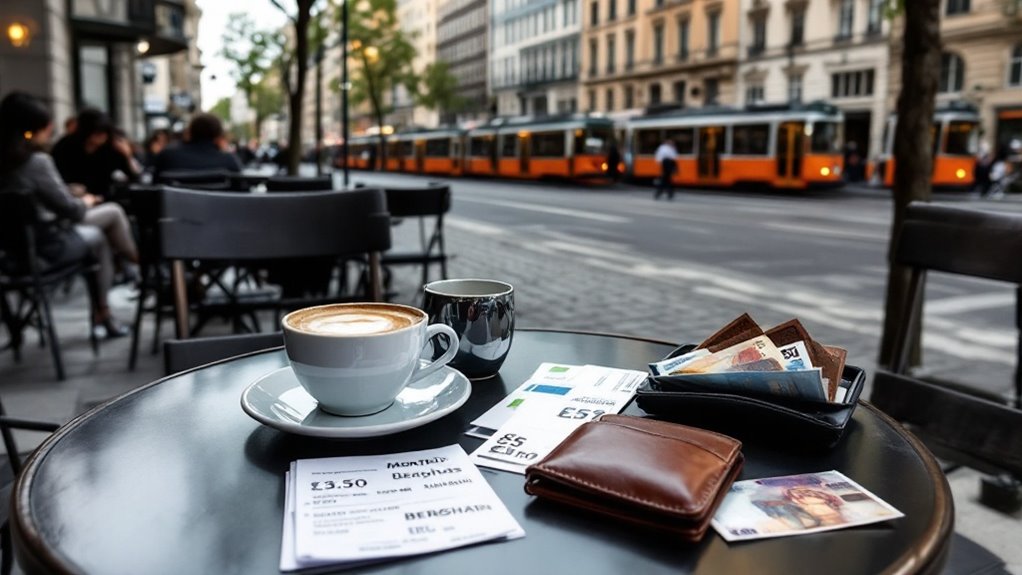Physical Address
304 North Cardinal St.
Dorchester Center, MA 02124
Physical Address
304 North Cardinal St.
Dorchester Center, MA 02124

You'll need between €2,500-3,000 monthly to live comfortably in Berlin, covering a one-bedroom apartment (€1,700), utilities (€300), groceries (€300), transportation (€60), and entertainment (€200). While housing costs have risen by 15%, you can find significant savings in neighborhoods like Marzahn-Hellersdorf, where rents are half those in Mitte. Berlin's mix of affordable public transit, diverse dining options, and cultural attractions makes budgeting an adventure worth exploring.

While Berlin has long been considered one of Europe's more affordable capitals, you'll find the city's housing market has shifted dramatically in recent years.
A one-bedroom apartment will set you back around €1,700 monthly, while a cozy studio runs about €1,200. If you're wondering about utilities, plan to budget €250-€360 per month for an 85m² apartment, covering electricity, heating, water, and waste management.
You'll notice significant price variations between districts – Mitte commands the highest rents at €23.55/m², while Marzahn-Hellersdorf offers more budget-friendly options at €11.70/m². The market's significant rental price increase of 15.10% reflects intense competition among tenants.
Don't forget to factor in internet and TV costs, which typically run €30-€40 monthly for a basic package.
These days, finding an affordable Berlin nest might require some creative district-hopping!
Berlin's robust public transportation network offers three main ticket options that'll keep you moving through the city's vibrant streets. You can hop on with a single journey ticket for €3.80, grab a day pass for €10.60, or invest in a monthly pass for €106.50.
If you're staying long-term, you'll save considerably with the Deutschlandticket at just €58 per month, which also lets you travel nationwide.
For budget-conscious travelers, there are plenty of ways to cut costs. Short trips of 3 S-Bahn stops cost only €2.60, while social welfare recipients can travel for €9 monthly. Tourists can get the Berlin WelcomeCard which offers significant discounts at over 200 attractions throughout the city.
If you're exploring with friends, consider the small group day ticket at €33.30 for up to five people – that's less than €7 per person for a full day of unlimited travel.

After mastering the city's transportation system, you'll need to fill your stomach without emptying your wallet. Berlin offers diverse food options for every budget, from budget-friendly groceries to upscale dining experiences.
You can keep monthly grocery costs between €200-€400 as a single person by shopping at discount chains like Lidl and Aldi, while families typically spend €450-€900.
For dining out, you'll find döner kebabs for around €6, while a nice three-course meal for two can range from €40-€100. A dinner date at a mid-range restaurant will cost around €65 per couple.
To maximize your food budget, consider cooking at home, which saves 30-50% compared to eating out.
Don't forget to explore the Turkish Market in Kreuzberg for affordable produce, and take advantage of late-day bakery discounts, where you'll find pastries at 30-50% off after 7 PM.
Understanding healthcare costs in Germany is essential for planning your Berlin budget, since medical insurance is mandatory for all residents.
You'll typically choose between public and private insurance, with public insurance costing 14.6% of your gross salary, split equally between you and your employer. If you're employed, you'll pay around 7.3% of your salary, plus a small additional contribution of about 1.7%.
For public insurance, you'll face modest copays: €10 quarterly for doctor visits, €10 per prescription, and €10 daily for hospital stays.
If you're earning above €62,550 annually, private insurance might be more cost-effective, with monthly premiums ranging from €350-€900 depending on your age and health status. Private plans often include perks like better hospital accommodations and expanded dental coverage. Recent trends indicate that healthcare costs are projected to see an 8% increase by 2025, which could affect insurance premiums.

When it comes to enjoying life in Berlin, you'll find the city's entertainment scene offers something for every budget and taste. You can dine out for as little as €20 per person or splurge on a fancy dinner for €125.
Culture enthusiasts will love the €29 three-day museum pass that covers over 30 venues, while fitness buffs can choose from basic €20 monthly gym memberships to premium €149 Urban Sports Club packages.
For nightlife, you'll spend €3.50-15 on drinks at bars, though many locals save money by grabbing beverages from Spätis. The city's vibrant urban energy makes nightlife particularly exciting, with countless venues to explore.
Most singles budget €100-300 monthly for entertainment, while couples typically set aside €300 for dining and leisure activities.
Don't forget to take advantage of free activities like exploring Tiergarten or visiting museums on first Sundays.
Living in Berlin can be as affordable or luxurious as you'd like to make it – just like a "choose your own adventure" story! You'll need between €1,500 to €2,500 monthly to live comfortably, depending on your lifestyle choices. While housing might take the biggest bite out of your budget, the city's efficient public transport and diverse food scene let you stretch your euros further. With smart planning, you can experience Berlin's rich culture without breaking the bank.